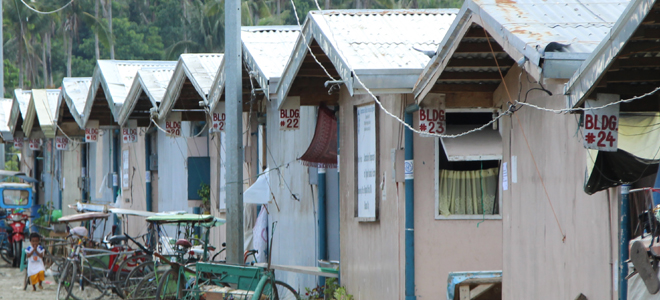Groups call on House panel to probe Yolanda housing
October 12, 2015
Civil society groups urged today the House of Representatives Special Committee on Climate Change to summon relevant government agencies to explain the slow implementation of housing projects for Yolanda survivors.
Dennis Calvan, executive director of NGOs for Fisheries Reform, led the call, noting that almost two years after Yolanda, thousands of families in affected areas still live in unsafe zones and in transitional houses, while permanent resettlement sites lack basic utilities such as water and electricity. Families who relocated to permanent resettlement sites also complain of the additional costs entailed by the distance of their new homes from their sources of income and their children’s schools, Calvan added.
The Philippine Legislators’ Committee on Population and Development (PLCPD) has convened a technical working group (TWG), composed of various civil society groups, to work on policy proposals based on a PLCPD study that documented various issues in post-Yolanda housing.
The PLCPD study on government policies on post-Yolanda housing found out incoherent policies particularly in identifying permanent resettlement sites. The study also noted that some areas in Samar and Leyte have yet to receive any government support to affected communities.
Social Watch Philippines reported in June that only 28.3 percent of the P76.678-billion funding requirement has been downloaded for implementation and only 73,000 housing units out of the 205,128-demand are currently being built.
The TWG urged the government to speed up Yolanda rehabilitation efforts, particularly on housing, in Yolanda-affected areas and lay out a clear and concrete plan to ensure that such a disaster will not happen again.
“We need to harmonize and coordinate programs and policies to facilitate immediate and effective disaster preparedness, response, and rehabilitation,” Romeo Dongeto, PLCPD executive director, said.
“Adequate housing lies at the core of building resilient and sustainable communities, especially amid the growing threat of climate change,” Dongeto added.

